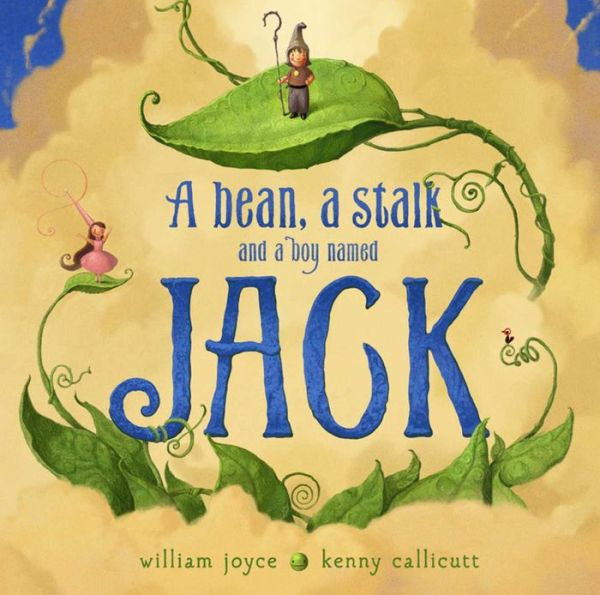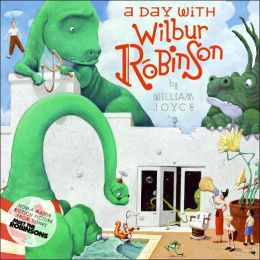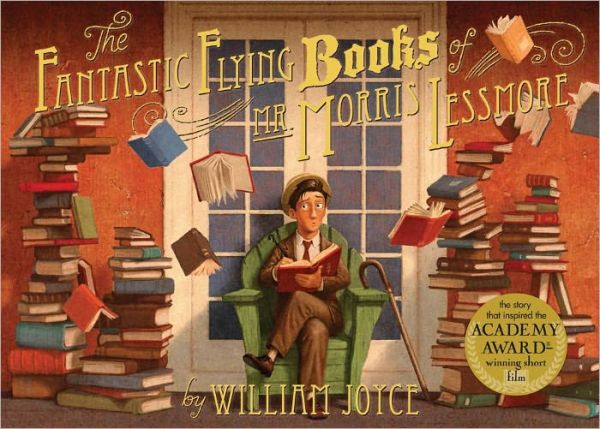To this day I've yet to finish the book or pick up another James Joyce title to try. There are very few books or authors I've tried out and totally disliked right from the start, but he's one of them.
Thankfully, I've found another Joyce to read that is James' complete opposite. These books are remarkably creative with the most beautiful illustrations. The stories are unique, even taking popular tales and putting a new spin on them to appeal to a wider audience. It took having kids (and a few animated movies) to fully discover this author, but I've managed to find a readable Joyce, and his name is William.
Most widely known are William Joyce's Guardians series which follows the adventures of Santa, the Tooth Fairy, the Man in the Moon, Jack Frost, and the Easter Bunny and Epic. Both were made into movies. Guardians is actually really good. If my daughter wasn't so afraid of the bad guy, Pitch, this movie would be a staple of our house. Epic is okay. But, it's the books for the younger kids that really just blow me away. My daughter got two of them for the holidays this year and we've loved reading both; A Day with Wilbur Robinson (which is also a movie that's pretty good now that I think of it) and A Bean, A Stalk, and A Boy Named Jack. They are both imaginative and adventurous and hopefully inspiring to my amazing four-year-old who is beginning to pretend more and more as she plays.
 William Joyce makes the unusual exciting and weaves in such simple moral lessons like the importance of family, being careful what you wish for, the value of an individual, the importance of laughter, and realizing that even big problems can have a simple answer. These are the types of stories I hope stay with my kids as they grow up and move away from picture books to the more involved chapter books. While I can't wait to watch then discover Harry Potter, His Dark Materials, A Wrinkle in Time, etc. I feel like these books are where all that creative imagination that you can pull from a book is starting. I feel honored to be watching this process really begin with my daughter and can't wait for my son to be old enough to experience this same thing too.
William Joyce makes the unusual exciting and weaves in such simple moral lessons like the importance of family, being careful what you wish for, the value of an individual, the importance of laughter, and realizing that even big problems can have a simple answer. These are the types of stories I hope stay with my kids as they grow up and move away from picture books to the more involved chapter books. While I can't wait to watch then discover Harry Potter, His Dark Materials, A Wrinkle in Time, etc. I feel like these books are where all that creative imagination that you can pull from a book is starting. I feel honored to be watching this process really begin with my daughter and can't wait for my son to be old enough to experience this same thing too.Another William Joyce book that I really love that my family is still getting into is The Fantastic Flying Books of Mr. Morris Lessmore. I think it might also be a short film, but the book is such a great story about the value of your own life as you live it, the things you accomplish for yourself, and the people you care about. It's about your personal story and how much it really matters. And, there are flying books!
I feel like we're just scratching the surface of the large library of books William has penned and I'm looking forward to reading more as my kids grow. I'm just thankful there's a Joyce out there writing that I can enjoy since my first encounter with a literary Joyce was so totally disappointing.















